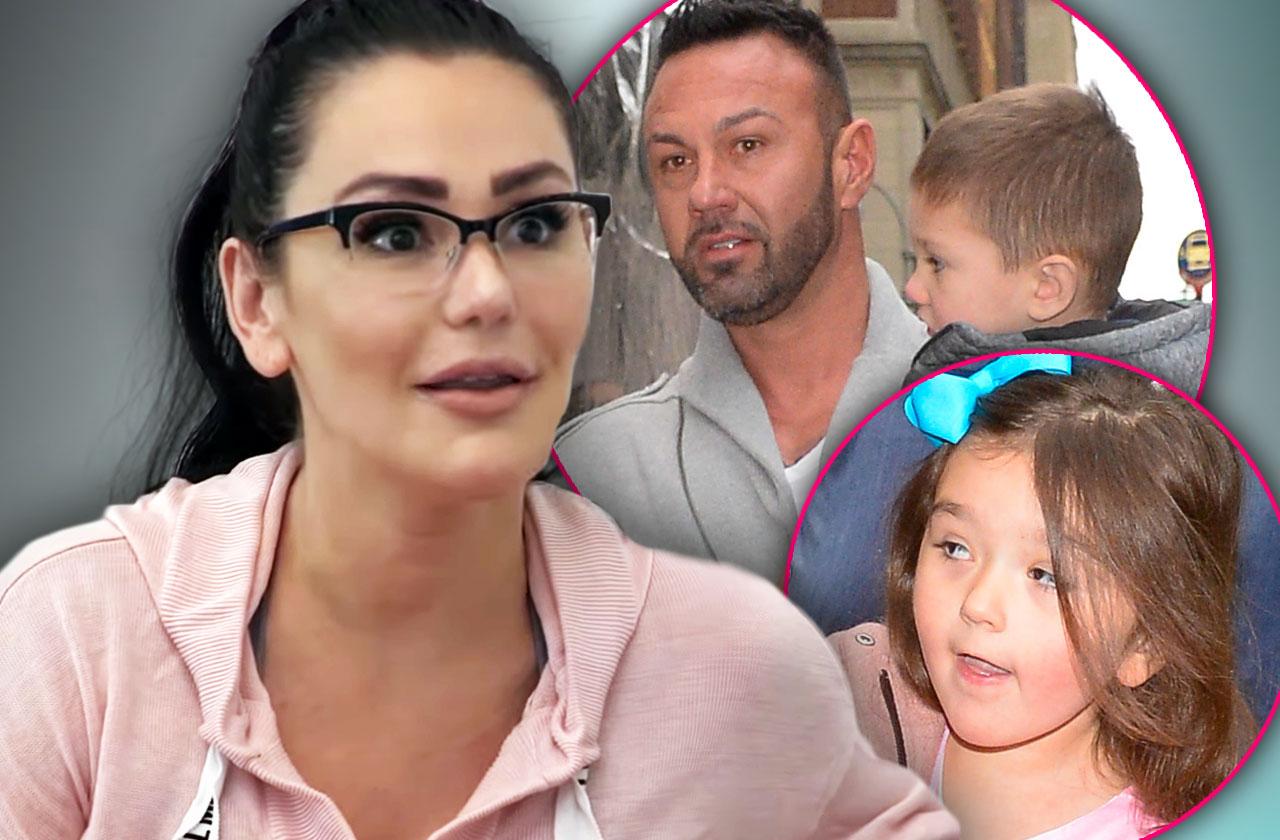Jenni And Roger Domestic Violence - A Closer Look
The weight of strained relationships, particularly when they involve deep personal connections, can feel incredibly heavy, that is so true. It’s a reality many face, often quietly, behind closed doors. When we think about the dynamics between individuals, say, like Jenni and Roger, it brings up thoughts about how complex human bonds can truly be. What happens when care turns into something else, something that brings hurt instead of comfort?
In various forms, the quiet struggles within a home can often go unnoticed by those on the outside. It's a sensitive subject, to be sure, and one that requires a thoughtful approach. We often hear about the public faces of individuals, their achievements, or their professional lives, yet the private spaces where true emotional exchanges happen are often hidden from public view. This is a very delicate area to explore, yet an important one for all of us to consider, in some respects.
This discussion aims to shed some light on the broader topic of domestic violence, using the names Jenni and Roger to represent the many individuals who might experience such difficult circumstances. It's about recognizing the subtle cues, understanding the profound impact, and knowing that there are paths to support and safety. We'll consider what it means to be in a relationship where power dynamics shift unhealthily, and how one might seek a way out or offer a helping hand, arguably.
- Moisturized Unbothered Meme
- Jay Z Drinking Blood
- Distorted Fish Trope
- Eva Violet Gross
- Cooking With Kia Leaked
Table of Contents
- What Does Domestic Violence Look Like?
- Recognizing the Signs in Relationships like Jenni and Roger's
- Why Do People Stay in Difficult Situations?
- The Emotional Toll on Individuals, including Jenni
- How Can Support Make a Difference?
- Finding a Path Forward for Roger and Others
- Where Can Someone Find Help?
- Steps Towards a Safer Future
What Does Domestic Violence Look Like?
When we talk about domestic violence, it’s not always about obvious physical harm, you know. Often, it involves a pattern of controlling behaviors that one person uses to hold power over another in an intimate relationship. This can include emotional abuse, where words are used to diminish someone's worth, or financial abuse, which might involve keeping money or preventing access to resources. There's also psychological abuse, which can be a bit more subtle, making someone doubt their own mind or reality. It’s a complex web of actions that erode a person's spirit and independence, typically.
Consider a situation where someone, perhaps like Jenni, feels constantly criticized or belittled by a partner. Their thoughts and feelings might be dismissed, or they might be told they are overreacting to everything. This kind of emotional chipping away can be just as damaging as any physical blow, maybe even more so in some respects because it attacks a person’s sense of self. It can make someone feel isolated, as if they have no one to turn to, and that is a very frightening feeling, as a matter of fact.
Then there's the element of coercion and threats. A partner might use intimidation, perhaps like Roger might, to get their way, making the other person feel unsafe or scared to express their true feelings. This could involve threats to harm themselves, the other person, or even pets or children. It’s a way of keeping someone trapped, making them believe there’s no way out. The fear of what might happen if they speak up or try to leave can be paralyzing, honestly.
- Bros Uncovered Intimate Glimpses Into The World Of Bicurious Boys
- Dj Envy Halloween 2024
- Beldots Of Leaks
- Lilmermaidxx Nude Pics
- Tomer Lawton Omegle
Financial control is another common thread. One person might prevent the other from working, or control all the money, giving out only small allowances. This leaves the person dependent and unable to leave, even if they desperately want to. It's a powerful tool for maintaining dominance, and it's something that can happen quite subtly over time, basically. These actions, whether they are physical or not, create an environment of fear and control that is deeply unhealthy for anyone involved, you know.
Recognizing the Signs in Relationships like Jenni and Roger's
Spotting the indicators of domestic violence can be difficult, especially from the outside. People in such situations often hide what's happening, feeling ashamed or afraid. However, there are often subtle shifts in behavior or circumstances that might signal trouble. For instance, someone like Jenni might start to withdraw from friends and family, making excuses for not attending social gatherings. This isolation is a common tactic used by an abuser to ensure their partner has fewer connections and less support, so.
You might notice changes in their mood or demeanor. They could seem anxious, depressed, or unusually quiet. They might also appear jumpy or nervous around their partner, like Roger. There could be unexplained injuries, or they might frequently cancel plans at the last minute, offering vague reasons. These are all potential signals that something is amiss, and it's important to pay attention to them, really.
Another sign could be a sudden lack of access to their phone or communication devices, or their partner constantly checking up on them. This constant monitoring is a way to control and isolate, limiting their ability to reach out for help. They might also seem to lose their spark or their usual confidence, becoming a shadow of their former self. These changes, though seemingly small on their own, can collectively paint a picture of a very troubled relationship, kind of.
For someone like Roger, the signs might be different. They might exhibit extreme jealousy, possessiveness, or a need to control every aspect of their partner's life. They might belittle their partner in public or private, or blame them for everything that goes wrong. These behaviors are not signs of love or care, but rather of a desire for dominance and power. It's a pattern that can become deeply ingrained, and often escalates over time, honestly.
Why Do People Stay in Difficult Situations?
It's a question many people ask: why doesn't someone just leave a difficult situation? The answer is never simple, and it's certainly not about a lack of strength or desire. There are so many complex reasons that keep individuals, perhaps like Jenni, in relationships that cause them harm. One of the biggest factors is fear. Fear of what the abuser might do if they leave, fear for their children's safety, or even fear of being alone. This fear can be incredibly paralyzing, you know.
Then there's the emotional manipulation that often occurs. Abusers are very skilled at eroding a person's self-worth, making them believe they are unlovable or incapable of surviving on their own. They might cycle between periods of intense abuse and moments of kindness, creating a confusing bond that makes it hard to break away. This "hope" for things to get better can be a powerful tether, making someone hold on longer than they should, apparently.
Financial dependence is another huge barrier. If someone like Jenni doesn't have their own money, a place to go, or a job, the thought of leaving can seem impossible. They might worry about how they will support themselves or their children. This practical concern is a very real obstacle, and it's one that abusers often exploit to maintain control, in a way.
There can also be a deep sense of shame or embarrassment. People might feel like they have failed, or that others will judge them. They



Detail Author:
- Name : Giovanna Dooley
- Username : kennedy58
- Email : gskiles@yahoo.com
- Birthdate : 1997-04-02
- Address : 46317 Genoveva Knolls Abshireburgh, MN 84992
- Phone : (430) 682-2219
- Company : Bernhard, Mitchell and Farrell
- Job : Personal Financial Advisor
- Bio : Praesentium a enim consectetur iste dolore. Voluptas quod nemo numquam. Rerum est exercitationem ipsam occaecati. Voluptas omnis facilis optio nulla.
Socials
instagram:
- url : https://instagram.com/kbotsford
- username : kbotsford
- bio : Dolor asperiores alias aperiam quisquam. Quia ab quo est delectus corporis quidem enim.
- followers : 5994
- following : 907
tiktok:
- url : https://tiktok.com/@botsford2006
- username : botsford2006
- bio : Ut rerum velit ut aut. Necessitatibus nam doloribus sint possimus quae.
- followers : 1023
- following : 561
twitter:
- url : https://twitter.com/karianebotsford
- username : karianebotsford
- bio : Officia ut qui eveniet. Cupiditate aut facere quo voluptatem. Aut perferendis repellat quos laudantium quibusdam quisquam voluptas non.
- followers : 5986
- following : 2091
linkedin:
- url : https://linkedin.com/in/kbotsford
- username : kbotsford
- bio : Odio iste quam animi tempora dolores qui.
- followers : 4965
- following : 1915
facebook:
- url : https://facebook.com/botsford2009
- username : botsford2009
- bio : Et nesciunt omnis sint quibusdam dolore error. Hic qui molestias a aut.
- followers : 3253
- following : 1612